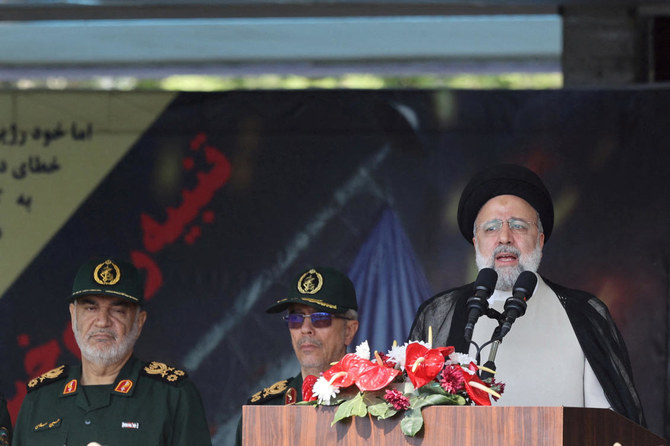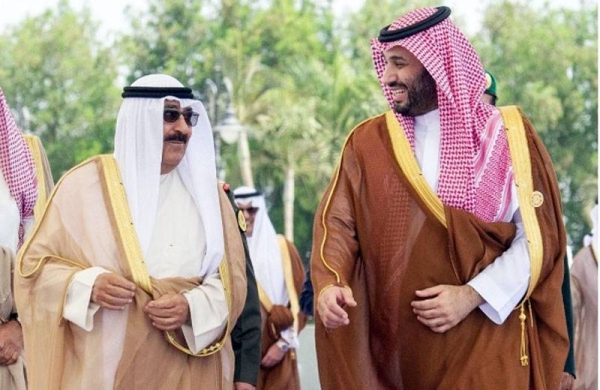
Ebrahim Raisi will be accompanied by ‘a high-level delegation comprising the foreign minister... as well as a large business delegation’
ISLAMABAD: Iran’s President Ebrahim Raisi will travel to Islamabad on Monday to meet his Pakistani counterpart Asif Ali Zardari, Pakistan’s foreign ministry said, as the two countries seek to mend ties following deadly cross-border attacks this year.
Raisi will be accompanied by “a high-level delegation comprising the foreign minister... as well as a large business delegation,” the foreign ministry said in a statement on Sunday.
The tit-for-tat missile strikes in January in the porous border region of Balochistan — split between the two nations — stoked regional tensions already inflamed by the Israel-Hamas war.
Tehran carried out the strikes against an anti-Iran group in Pakistan the same week it targeted Iraq and Syria.
Pakistan responded with a raid on “militant targets” in Iran’s Sistan-Balochistan province, one of the few mainly Sunni Muslim regions in Shiite-dominated Iran.
Both countries have in the past accused each other of sheltering militants.
A visit to Islamabad by Tehran’s foreign minister led to the two sides pledging to improve dialogue and install liaison officers in both countries.
Sistan-Balochistan province has for years faced unrest involving cross-border drug-smuggling gangs and rebels from the Baloch ethnic minority, and Muslim extremists.
Raisi will also visit Lahore and Karachi to meet provincial leaders, according to the statement.
The countries will further strengthen ties and enhance cooperation in “trade, connectivity, energy, agriculture, and people-to-people contacts,” it added.
Pakistan is counting on a joint gas project with Iran to solve a long-running power crisis that has sapped its economic growth.
A $7.5-billion Iran-Pakistan gas pipeline intended to feed Pakistani power plants was inaugurated with great fanfare in March 2013.
But the project immediately stagnated following international sanctions on Iran.
Tehran has built its own section of the 1,800-kilometer (1,100-mile) pipeline, which should eventually link its South Pars gas fields to the Pakistani city of Nawabshah, near Karachi.
In February, Pakistan’s outgoing caretaker government approved the construction of an 80-kilometer section of the pipeline, primarily to avoid the payment of billions of dollars in penalties to Iran due to years of delays.
Washington has warned that Pakistan could face US sanctions, saying it does not support the pipeline going forward.












